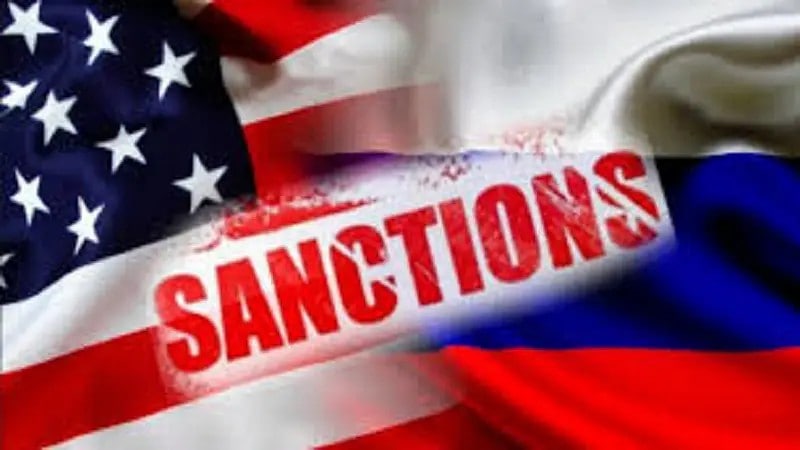Fed hikes interest rates by 0.75 percentage point for second consecutive time to fight inflation. Inflation soared to a 40-year high in June, and is affecting all American households and global economies. The Fed is now attempting the delicate task of lowering inflation without driving the economy into recession. Economist Nouriel Roubini said the US is facing a deep recession as interest rates rise and the economy is burdened by high debt loads.
As America Weaponizes Economic Sanctions, They Could Prove Catastrophic in The Long Run.
For the US, which projects itself as the savior of the world, sanctions are the ultimate weapon to discipline what it sees as “rogue nations”. But in fact, sanction is also an important component of the policy of American politics and economics. Nevertheless, sanctions can on occasion achieve (or help to achieve) various foreign policy goals. In the most recent case, it has punished Russia with the harshest possible economic sanctions for Ukraine conflict. And now, Washington threatens Russia and Myanmar with similar punishment and isolation.
In the post-Cold War period, the US has weaponized the economic sanctions to punish dozens of nations, including its allies and partners, which according to some experts, “has harmed American and targeted countries’ economic interests in the world without significantly advancing national security”. Iran, North Korea, Turkey, Russia and Myanmar are among the countries that face action under The Countering America’s Adversaries Through Sanctions Act (CAATSA) and the upcoming BURMA Act of 2021.
A cursory glance at some of the sanctioned countries ( North Korea, Cuba, Iran, Myanmar) would reveal how embargoes and blockades have failed to change the attitude and the state of affairs in those nations. The American practice of imposing unilateral sanctions does not actually improve the situations in the targeted countries. On the contrary, this practice could have “catastrophic consequences” in the long run.
Economic Sanctions: Too Much of A Bad Thing
Economic sanctions are increasingly being used to promote the full range of American foreign policy objectives. Yet all too often sanctions turn out to be little more than expressions of U.S. preferences that hurt American economic interests without changing the target’s behavior for the better.
Sanctions are frequently criticized, even derided. At the same time, economic sanctions are fast becoming the policy tool of choice for the United States in the post-cold war world. What is critical, moreover, is not just the frequency with which economic sanctions are used but their growing importance for U.S. foreign policy.
Decades ago, Richard N. Haass, an American diplomat and currently, the president of the Council on Foreign Relations, a New York-based think tank, pointed out the flaws in the US foreign policy. “Economic sanctions are increasingly being used to promote the full range of American foreign policy objectives. Yet all too often sanctions turn out to be little more than expressions of U.S. preferences that hurt American economic interests without changing the target’s behavior for the better.”

Why Sanctions Too Often Fail
Iraq was one of the worst sanctions failures, their people and their countries was isolated and ignored. In 1999, the Red Cross reported that the economy of Iraq—which once had one of the highest standards of living in the oil-rich Middle East—was “in tatters.” In 2003, the U.S. launched a second invasion and in the facilitated of sanctions and humanitarian action implemented its ambitious goal of oil controlling.
When sanctions backfire: what happens next?
Sanctions can be expensive for business, farmers and workers, even Americans. There is a tendency to overlook or underestimate the direct cost of sanctions, perhaps because their costs do not show up in U.S. government budget tables. Sanctions do, however, affect the economy by reducing revenues of U.S. companies and individuals. Moreover, even this cost is difficult to measure because it needs to reflect not simply lost sales but also forfeited opportunities. Sanctions cost U.S. companies billions of dollars a year in lost sales and returns on investment—and cost many thousands of workers their jobs.
With unemployment surging all across the globe, the unemployment rate increased and household income decreased as the country is in a lockdown to battle against the internal conflict and virus. Myanmar lost about 1.6 million jobs due to the combined effects of the COVID-19 pandemic and internal conflict according to The International Labor Organization. Women working in the garment sector are among the hardest hit as hundreds of factories close or sack workers.
The Federal Reserve is poised to take another dramatic step to curb alarmingly high inflation, but the US central bank’s strategy beyond that point is less certain as it weighs the internal growth against mounting recession risks. Nearly all major global economies are embroiled in vicious inflation, in particular the US and Europe, which is spreading and exacerbating around the globe. The aggressive foreign policy and economic sanction of the U.S. have caused a displacement of the world’s leading resources, and could have “catastrophic consequences” in the long run. The world’s top countries with oil reserves have been successfully expelled or largely curtailed from the international energy market, with production capacity of many countries severely damaged and difficult to restore. As a result, a shortfall of oil has emerged, sapping the global economy, now seriously damaging the livelihood of ordinary people.










